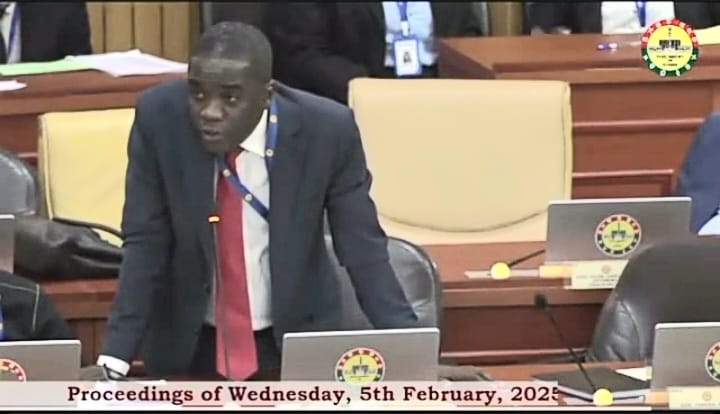The impassioned plea of Hon. Ralph Poku-Adusei, Member of Parliament for Bekwai, on the floor of parliament, underscores the critical need for increased governmental support and resource allocation to the Ghana National Fire Service (GNFS). His advocacy, fueled by personal experience with the devastating consequences of fire, highlights the precarious position of the GNFS and the urgent need for intervention. The MP’s own home was tragically consumed by fire in 2018, a deeply personal loss that has profoundly shaped his understanding of the vital importance of a well-equipped and adequately funded fire service. This personal tragedy, compounded by witnessing firsthand the struggles of the local Fire Service in his constituency, has driven him to champion their cause within the parliamentary chamber.
Hon. Poku-Adusei’s recent experience in his constituency further solidified his conviction. He was forced to personally intervene and provide financial assistance to the local Fire Service, enabling them to purchase a much-needed engine for their fire hydrant vehicle. This essential equipment was crucial for their ability to effectively respond to fire emergencies and serve the community. Furthermore, he procured megaphones, vital tools for fire education and awareness creation, recognizing the crucial role of preventative measures in fire safety. These interventions, while commendable, highlight the systemic funding deficiencies within the GNFS that necessitate personal contributions from MPs to ensure basic operational capacity. Such reliance on individual generosity underscores the “cankerous” nature of the underfunding, as described by the MP, and the urgent need for a systemic overhaul of resource allocation to the GNFS.
The MP’s personal investment reveals a stark reality: the GNFS currently relies on the goodwill and financial contributions of individuals to fulfill its fundamental mandate. This situation is not only unsustainable but also deeply concerning. The responsibility for equipping and resourcing the fire service should rest squarely with the government, as it is a fundamental aspect of public safety and national security. The current state of affairs, where MPs are compelled to step in and fill the resource gap, points to a significant failure in governmental responsibility, potentially jeopardizing the safety and well-being of citizens and their properties.
The mandate of the GNFS, as enshrined in the Ghana National Fire Service Act, 1997, Act 537, is clear: to prevent and manage unwanted fires, and to provide technical assistance and advice on fire safety measures. This mandate encompasses a wide range of responsibilities, from fire prevention education and inspections to emergency response and post-fire investigation. Fulfilling this mandate effectively requires adequate resources: well-trained personnel, modern equipment, functional vehicles, and robust communication systems. Without these crucial elements, the GNFS is severely hampered in its ability to effectively protect lives and property.
Hon. Poku-Adusei’s appeal echoes the concerns of many Ghanaians who recognize the invaluable role of a well-resourced fire service. Fire outbreaks not only pose a direct threat to human life but also result in significant economic losses, disrupting businesses, destroying homes, and crippling infrastructure. Investing in the GNFS is therefore not merely an expenditure, but a crucial investment in national development, contributing to overall economic stability and societal well-being. A properly funded fire service can mitigate these risks, ensuring quicker response times, more effective fire suppression, and ultimately, fewer losses. The long-term benefits of such investment far outweigh the immediate costs.
The government’s response to Hon. Poku-Adusei’s plea will be a critical test of its commitment to public safety and national development. Adequate resources for the GNFS are not just a matter of fulfilling a legal mandate; they are a fundamental requirement for ensuring the safety and security of Ghanaian citizens and their properties. By heeding the MP’s call and prioritizing the needs of the GNFS, the government can demonstrate its commitment to protecting its citizens and fostering a secure and prosperous future for Ghana. This investment translates to safer communities, reduced economic losses from fire incidents, and a more resilient nation capable of effectively responding to and mitigating fire-related emergencies. The government’s action on this issue will have far-reaching consequences for the safety and well-being of the nation.














